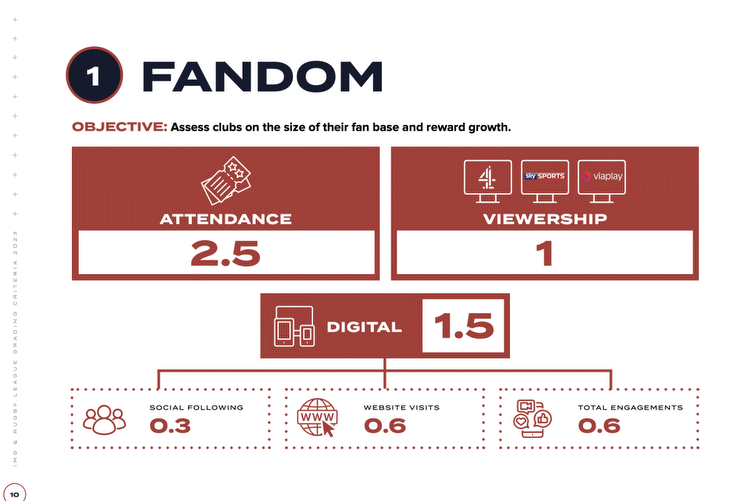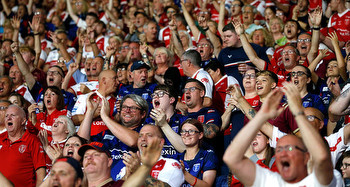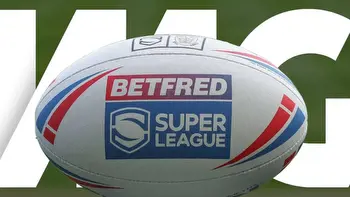Do IMG’s proposals promise a brighter future?

League Express editor MARTYN SADLER wonders whether IMG’s grading proposals will achieve their hoped-for objective.
So what are we to make of IMG’s proposals to grade Rugby League clubs into three categories, of which only those in the highest category A will be assured a place in Super League?
In fact those clubs will be bullet-proofed in Super League, with the other clubs classified as category B clubs making up the numbers until they can also achieve grade A status or, alternatively, their place is taken by other clubs outside Super League who are able to demonstrate that they deserve a grade A certificate.
The old idea of promotion into and relegation out of Super League looks as though it is on the way out.
And I have very mixed feelings about that.
I have long been an opponent of relegation from Super League as potentially ruinous of the clubs that suffer its consequences. We only have to look at the history of our sport to recognise how much relegation weakens a club as it tries to convert itself to part-time status in the Championship after being a full-time club in Super League.
The only clubs that have been able to recover from relegation are those that have had the wherewithal to gain promotion the following year, either because they have a benefactor who will finance them for a year without Super League income, or because they are prepared to bet the house on regaining their position in the elite competition.
Of course the difficulties then begin when a club bets the house on gaining promotion and doesn’t succeed in doing so. That unfortunately is the road to ruin.
But is it realistic to do away completely with promotion and relegation and allocate places purely on a hypothetical grading exercise that is effectively comparing clubs under five main criteria, as you will see from our story on page 3 of this issue?
If we are going to retain the Championship as a distinct second-tier competition, then it’s hard to see it succeeding without the teams that compete in it believing that they can gain promotion to Super League on the basis of their performances on the field.
I find it hard to imagine a more deflating experience for supporters than winning the Championship Grand Final but then discovering that a team that finished several points lower will get the promotion spot simply because it has half-a-point more than the team that has actually won the competition.
One of the great mistakes of licensing was to grant access to Super League to a club without that club having to prove itself on the pitch.
We only have to think back to Widnes in 2011, when the club was granted a Super League licence for the 2012 to 2014 seasons and the club effectively gave up on the 2011 season. If the licence offer, on the other hand, had been conditional on the club winning its competition in 2011, it would have been better for the club and for Super League, as well as for Rugby League in general.
And I see a similar danger if we adopt IMG’s proposals now.
The impact below Super League could be very damaging.
The obvious conclusion to draw is that the clubs that are graded ‘B’, when the grades are revealed next year, should be able to compete on a level playing field to gain promotion to Super League.
Whichever team wins the Championship Grand Final should enter Super League, even if it isn’t the highest graded ‘B’ club in that competition.
That will ensure that the Championship remains competitive and we should see the mere fact of promotion helping a club to consolidate its grade score.
The other thing that needs looking at is the way in which the points are added up to determine the ultimate grading for each club.
As it stands, a club will be awarded a Grade A score if it reaches 15 points across all five categories – fandom (5 points), performance (5), finance (5), stadium (3) and catchment (2).
I would be interested to know the underlying rationale for those weightings.
Of course there is a danger that we are adding cabbages and kings, given this formulation.
But effectively a club could achieve a Grade A score of 15 points even if it scores no points at all in one of those categories, let’s say finance, for example.
Surely there should be a condition, therefore, that a Grade A club must be able to achieve at least half the total marks in each of the relevant categories.
I have a lot of other reservations about IMG’s proposals but it’s important to see how this debate is going to unfold, with any potential modifications to the proposals, before 19 April, the date on which clubs will vote on these proposals.
This article features in Martyn Sadler’s ‘Talking Rugby League’ column in this week’s League Express. To take out a subscription, go to https://www.totalrl.com/league-express/



































